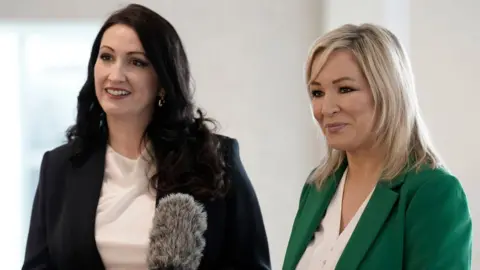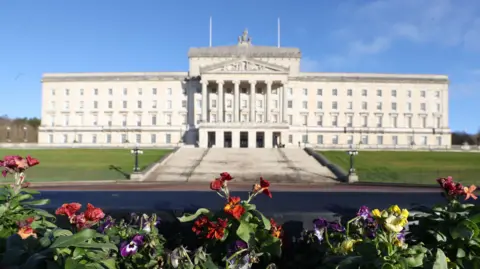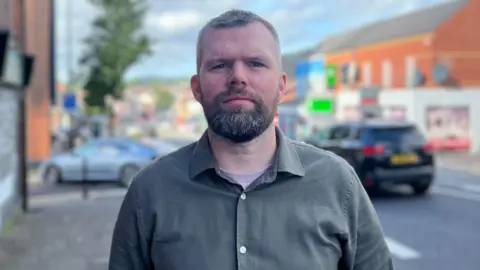
 PA
PA
The Northern Ireland Executive finally hopes to agree a draft programme for government more than seven months after the return of Stormont.
The failure to agree one so far has been heavily criticised.
It is understood the politicians hope to sign off a draft programme at an executive meeting later on Thursday.
But if they do it, we will not find out what is in it until Monday because convention dictates it is shown to assembly members first before the public gets to see it.
Programmes for government are published by the devolved governments as a way to set and measure long-term goals.
The Scottish government published its own programme for government on Tuesday but agreeing one among a four-party mandatory coalition, with sometimes competing agendas, is more difficult.
And for all the positive noises coming out of Stormont following the Democratic Unionist Party’s two-year boycott the failure to agree one so far has thrown an unwelcome focus on Stormont’s perceived failings.

 PA
PA
The last time a Stormont executive managed to agree a programme for government was for the period 2011 – 2015.
They also agreed one in 2016 which went out to public consultation. But before it could be passed the then Sinn Féin deputy first minister Martin McGuinness resigned in January 2017 and the executive fell.
When the executive returned in January 2020, Covid quickly came to dominate business and scuppered any chance of a programme for government being agreed.
SDLP assembly member Matthew O’Toole, Stormont’s leader of the opposition, said the executive has “never given a clear sense of what its priorities are”.
Speaking on the BBC’s Good Morning Ulster programme, he called on the executive to tackle issues including the health service which he said was “broken”, a “house building crisis” and an “ecological crisis” at Lough Neagh.
Mr O’Toole said that in order to address these issues the programme for government would need to set “clear targets” that had a timeline and “specific actions” towards achieving them.
Ann Watt, director of the think tank, Pivotal, issued a report this week which, while recognising some progress had been made, said the failure to agree a programme for government was “a big shortcoming”.


People Before Profit assembly member Gerry Carroll criticised the executive for the slow progress on reaching a programme for government.
He told BBC News NI there had been “multiple crises”, adding “they don’t seem to have any plan to deal with these”.
“They need to come clean with a plan of action to deal with some of the crises that people are facing because the credibility of the executive is wearing thin and people are seeing them as not doing much at a time of hardship,” he continued.
Analysis: Meaningful business
Mere survival is not enough.
Governments are not judged by smiley photo opportunities alone.
The vibes coming out of the executive remain good seven months after its return.
We no longer wonder from day to day if it will survive.
But we do wonder when it will begin to bring forward some meaningful business which will make a difference to people’s lives.
Governments exist to govern and that usually involves setting out the actions they intend to take in future, including a programme of legislation they want to pass.
That is what they are judged by in the long term, not merely the ability to bury deep-rooted constitutional differences, but to govern for the common good.
It is in that vein ministers will meet around the executive table.
It is hoped they will sign off a draft programme for government which should quieten the critics.
But this being Stormont, we will really only truly believe it when we see it.
What is a programme for government?
Devolved governments publish programmes for government as a way to set and measure long-term goals.
A programme for government is outcomes based.
These outcomes can be things with which people can identify, such as living longer and healthier lives or attracting better jobs – and are designed to stay in place for a generation rather than a single Assembly term.








